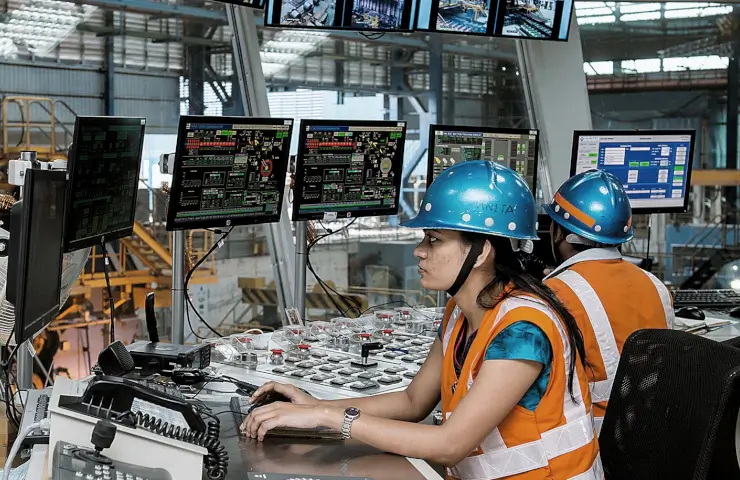The new coking plant in India is due to start operations in the fourth quarter of 2024. According to a company source familiar with the development, the plant's production capacity is about 1.5 million tons per year, which increases the need for coking coal to 2.1 million tons per year.
“We have already planned this is under fixed-term [contracts] with additional quotas in the second half of the year, so we do not have spot [demand for coking coal],” the source said, adding that the plant could start operating in November or December.
Even if the coking plant starts operating later in the fourth quarter, it is unlikely to reach full capacity due to the slowdown in the steel market, according to an international trader.
The plant could operate at about 70% of capacity, according to a trader. of its design capacity, and if it retained 30% of its mix as first-grade coal, the plant would only require half a month's Panamax coal load, adding that "this is unlikely to be a significant driver of spot demand for Australian first-grade [metabolic coal] in 2024."
Platts, a division of Commodity Insights, priced premium low-carbon hard coking coal at $2.65/t on the day, ending the day at $185/t on terms FOB Australia September 23.
Wider expansion
The new facility is part of a larger expansion that includes the commissioning of India's largest blast furnace. This will increase Tata Steel's crude steel production capacity at Kalinganagar by 5 million tonnes per annum, the company said.
Besides the coke plant, the complex also includes key facilities such as a pellet plant and a cold rolling mill.
The plant's pellet production capacity is 6.4 million tons per year, which has significantly reduced Tata Steel's dependence on external purchases of pellets, the company said.
According to the source, Tata Steel will use its own mines as a source of raw material for the new pellet plant.
However, the company received more quotas to purchase iron ore from both the Indian domestic market and the shipping market, focusing on high-quality iron ore products in in line with company-wide requirements, the source added.
Blast furnace and cold rolling mill
Tata Steel, calling it India's largest blast furnace ever commissioned, said the expansion The facility will help meet growing demand for steel from a variety of industries, including automotive, infrastructure and energy. The company did not mention whether steel would be exported from the site.
After starting up in September, the new plant gave a production forecast of 1.7 million tons for fiscal year 2024-25 (April-March), according to the company. Tata Steel said it plans to increase steel production capacity at the plant to a full 5 million tonnes next year.
Meanwhile, according to the company, the cold rolling mill has been operating since 2023 and is increasing capacity, and the galvanizing line, is expected to be operational by the end of fiscal 2024-25.
Tata Steel officials said the plant will be able to produce high-strength and high-quality galvanized steel required by the automobile industry.
Initial The cold rolling mill's capacity is estimated at approximately 1 million tons of cold-rolled coil per year, which will mainly be used in the domestic market, a company source said. The Indian domestic market will be able to absorb this new CRC capacity, the source added.
According to the company, the cold rolling facility includes one combined pickling and cold rolling mill with a capacity of 2.2 million tons per year.




